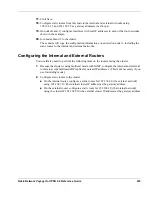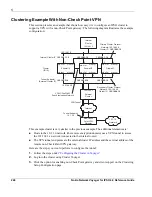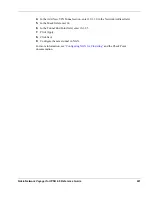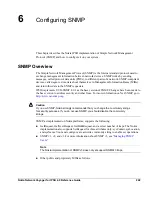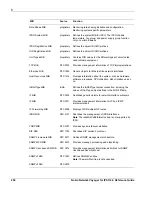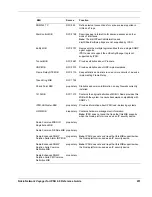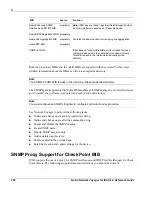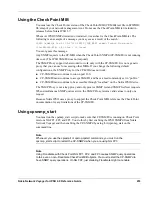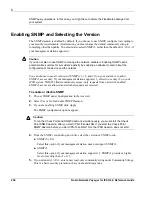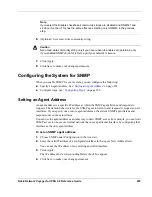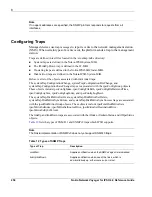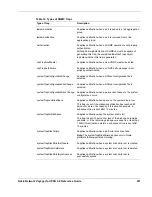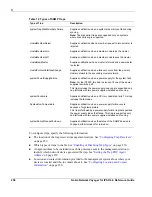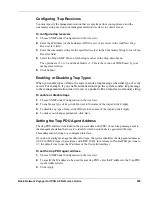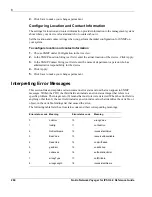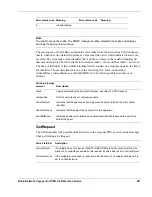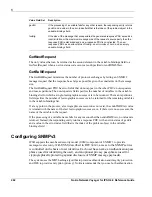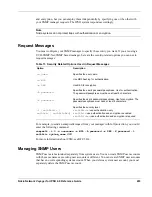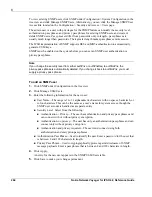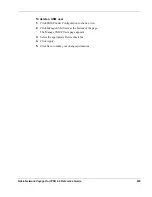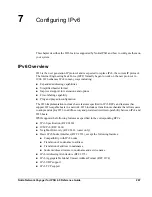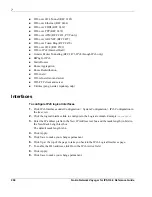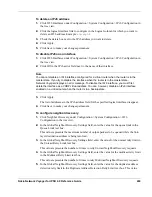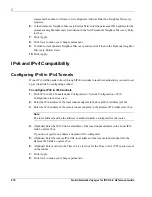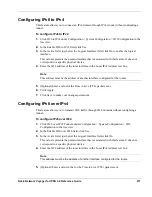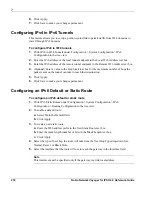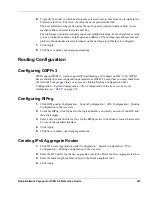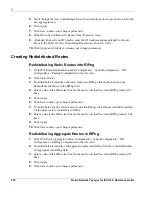
Nokia Network Voyager for IPSO 4.0 Reference Guide
259
Configuring Trap Receivers
You must specify the management station that accepts traps from your appliance, and the
community string used on your management station (receiver) to control access.
To configure trap receivers
1.
Choose SNMP under Configuration in the tree view.
2.
Enter the IP address (or the hostname if DNS is set) of a receiver in the Add New Trap
Receiver text field.
3.
Enter the community string for the specified receiver in the Community String for new Trap
Receiver field.
4.
Select the Trap SNMP Version for the trap receiver in the drop-down menu.
The options are v1 or v2, and the default is v1. This is the version of SNMP used by your
management station.
5.
Click Submit.
Enabling or Disabling Trap Types
When you enable types of traps, the system sends a trap message when that type of event
occurs. For example, if you enable authorization traps, the system sends a trap message
to the management station when it receives a packet with an incorrect community string.
To enable or disable traps
1.
Choose SNMP under Configuration in the tree view.
2.
To enable any type of trap, click On next to the name of the trap and click Apply.
3.
To disable any type of trap, click Off next to the name of the trap and click Apply.
4.
To make your changes permanent, click Save.
Setting the Trap PDU Agent Address
The trap PDU address is included in the protocol data unit (PDU) of each trap message sent to
the management station that uses it to identify which network device generated the trap.
This address must belong to a configured interface.
If you do not configure an agent address for traps, the system identifies the trap agent address as
0.0.0.0 in SNMP traps (in accordance with RFC 2089). (For releases of Nokia IPSO previous to
3.7, the default was to use the IP address of the first valid interface.)
To set the trap PDU agent address
1.
Choose SNMP under Configuration in the tree view.
2.
To specify the IP address to be used for sent trap PDU, enter the IP address in the Trap PDU
Agent Address field.
3.
Click Apply.
Summary of Contents for IPSO 4.0
Page 4: ...4 Nokia Network Voyager for IPSO 4 0 Reference Guide ...
Page 182: ...3 182 Nokia Network Voyager for IPSO 4 0 Reference Guide ...
Page 206: ...4 206 Nokia Network Voyager for IPSO 4 0 Reference Guide ...
Page 248: ...5 248 Nokia Network Voyager for IPSO 4 0 Reference Guide ...
Page 266: ...6 266 Nokia Network Voyager for IPSO 4 0 Reference Guide ...
Page 286: ...7 286 Nokia Network Voyager for IPSO 4 0 Reference Guide ...
Page 350: ...8 350 Nokia Network Voyager for IPSO 4 0 Reference Guide ...
Page 478: ...11 478 Nokia Network Voyager for IPSO 4 0 Reference Guide ...

